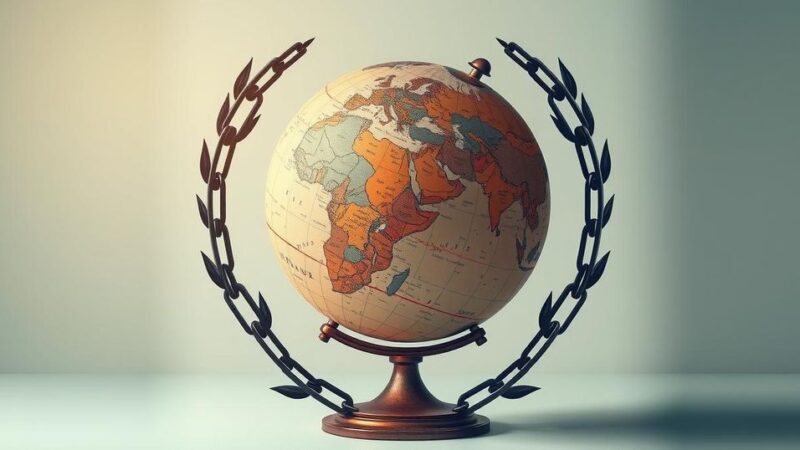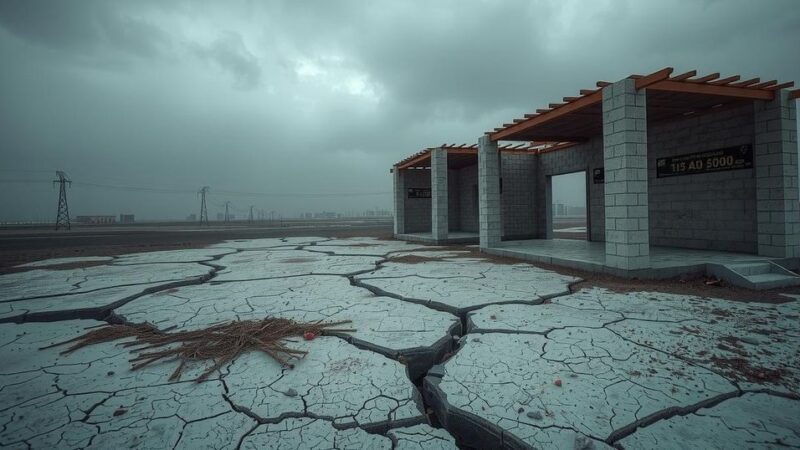Turkmenistan is set to begin natural gas shipments to Turkey via a swap agreement with Iran. Due to the lack of a direct pipeline, the arrangement entails sending Turkmen gas to Iran while Iran delivers an equivalent quantity to Turkey, commencing on March 1, 2025. The agreement aims to bolster Turkey’s ambitions to be a gas hub for Europe, though it underscores Turkmenistan’s increasing reliance on Iran for gas exports.
Turkmenistan is poised to commence its long-anticipated natural gas shipments to Turkey, potentially within weeks. Discussions surrounding the logistics of these shipments have culminated in a swap agreement involving Iran, as confirmed by Turkmen state media. Turkmenistan’s council head, Gurbanguly Berdimuhamedov, recently communicated details of this agreement to Iranian President Masoud Pezeshkian, emphasizing the transit of Turkmen gas through Iran to Turkey.
Due to the absence of a direct pipeline linking Turkmenistan and Turkey, the arrangement will see Turkmenistan transport gas to Iran, which will then provide an equivalent volume of its gas to Turkey. Turkish Minister of Energy Alparslan Bayraktar also acknowledged this strategic development, indicating that the gas flow is set to commence on March 1, 2025.
While specifics regarding the actual gas volume remain unclear, it has been suggested that Turkey aims to initially secure approximately 2 billion cubic meters (bcm). Turkish officials have diligently pursued this agreement for over two years, aspiring to position Turkey as a central gas hub for European shipments.
The negotiation efforts were bolstered by a December 2022 meeting between Turkish President Recep Tayyip Erdogan, Azerbaijani President Ilham Aliyev, and Turkmen President Serdar Berdimuhamedov. Although discussions surrounding a pipeline construction plan to transport Turkmen gas to Azerbaijan and subsequently to Turkey did not yield a conclusive agreement, they prompted further meetings to explore alternative shipping methods.
Despite the focus on the swap arrangement, Turkey is keenly interested in constructing a pipeline that could potentially increase Turkmen gas supplies to Turkey to 15 bcm. Turkish Ambassador Ahmet Demirok has articulated a vision for Turkey to purchase up to 300 bcm of Turkmen gas over the next two decades.
Turkmenistan’s increasing reliance on Iran for gas exports is noteworthy. Following its independence from the Soviet Union in 1991, Turkmenistan initially channeled gas primarily to Russia. However, past agreements have expired, resulting in the cessation of exports to Russia, thereby necessitating this current pivot towards Iran.
The reintroduction of pipelines from Turkmenistan to Iran has seen varied operational status, initially commencing in 1997, with an additional line established in 2010. A pricing conflict in late 2016 halted the gas exports to Iran, which remain suspended to this day. Consequently, Turkmenistan’s only existing gas clientele is China, which imports approximately 35 bcm annually.
With limited avenues for gas exportation, Turkmenistan has increasingly engaged in swap arrangements with other countries via Iran. Ongoing agreements include one with Azerbaijan for 1-2 bcm and a more recent pact to supply Iraq with 10 bcm of gas, though specific timelines for these arrangements remain ambiguous.
The operational state of the pipelines from Turkmenistan to Iran, which have largely been inactive for the past eight years, remains a concern. Iranian firms are expected to facilitate maintenance on these arteries and construct an additional 125-kilometer pipeline to facilitate greater shipments of Turkmen gas.
While Turkmenistan stands to benefit economically from these swap deals amidst stagnation—gas exports constituting over 80 percent of its revenue—these transactions hinge on the stability of the aged pipeline infrastructure and diplomatic relations between Iran and Turkmenistan. This dependency introduces an element of risk given the complexities surrounding the Iranian regime, which has historically invested significantly in regional conflicts.
In summation, Turkmenistan’s upcoming gas shipments to Turkey through a swap deal with Iran represent a significant economic opportunity for Turkmenistan. However, this arrangement raises concerns over the reliability of aging pipelines and the lasting diplomatic relations between the two nations. Turkey’s ambitions to become a gas hub for Europe hinge not only on this deal’s success but also on the construction of a direct pipeline to further enhance gas supply capacity.
Original Source: timesca.com






